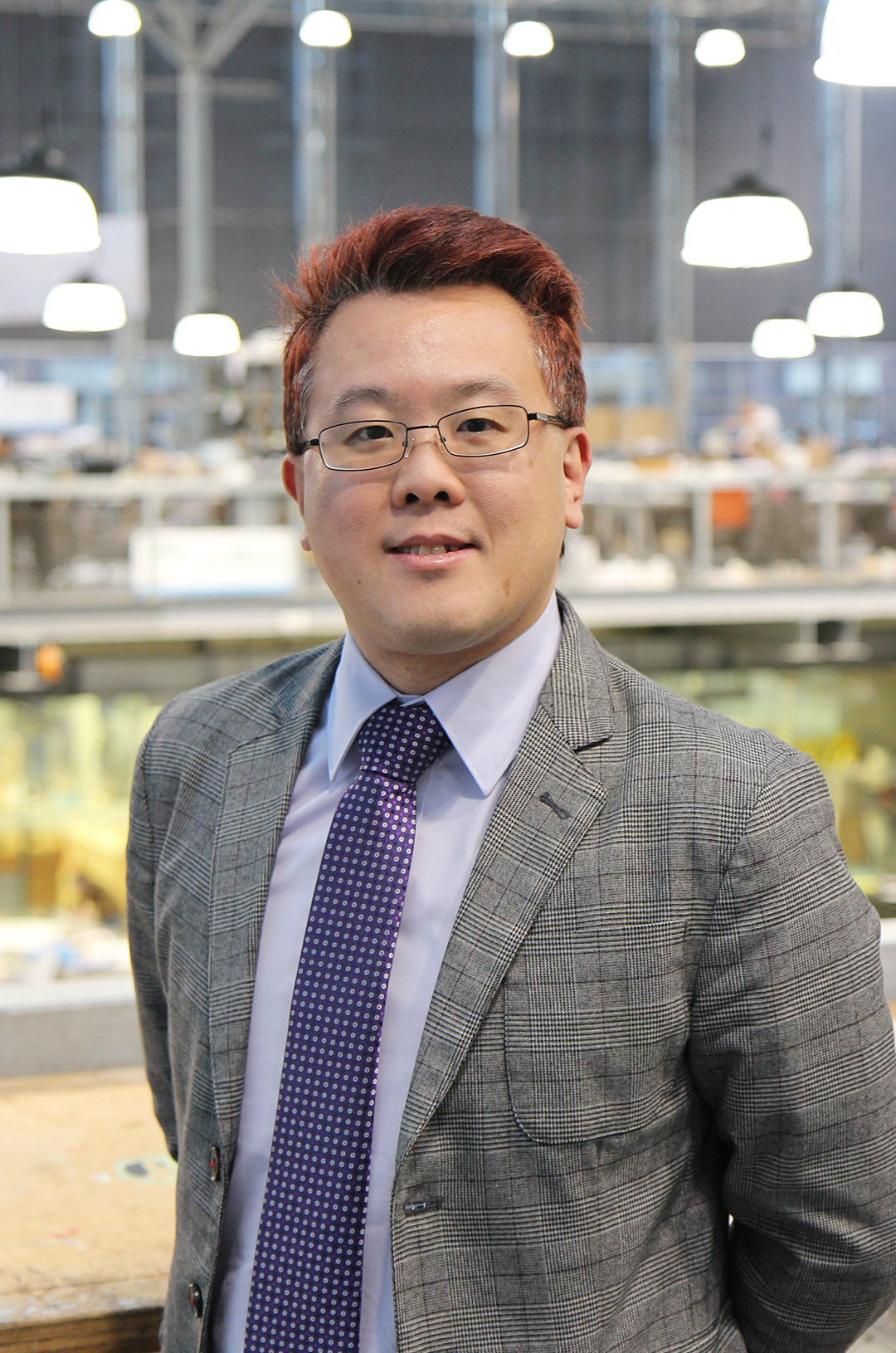Exploring processes and technologies
Paul Chan has been appointed Professor of Design and Construction Management. The Chair addresses questions of processes that enable whole-life thinking in the development and realisation of building projects. Future practices and accompanying new technologies are looked at from a sociotechnical perspective, exploring how they can contribute to constructing better buildings and communities.
“For me, building is not just about creating buildings, but also about creating communities. This raises the question: what kind of communities do we want to create? So, designing and constructing buildings will always involve the social aspect,” explains Chan. “I want to explore how technology can be applied in an appropriate way. For instance, we are experiencing the fourth industrial revolution. As we become smarter, construct smart buildings and develop smart cities, people often forget how we will actually put these new technologies to use. We need to acknowledge that these developments are disrupting our routines and conventional ways of working. I am fascinated by how these developments are disrupting our existing routines and how we can respond to that. It is important to explore how technology can contribute and for people to understand how it works.”
The primary focus of Chan will be on questions about the life cycle of buildings and looking at them from a different perspective. For example, while designing and constructing new buildings have been well studied, less so is done to examine the deconstruction and decommissioning of buildings. Yet, dealing with the end-of-life of buildings is already a factor in developed countries. This is especially true for places of deindustrialisation where industrial buildings like factories and even power plants no longer have a function. This is also happening in our high streets with properties becoming vacant or changing in use. Chan: “We’ll soon have city centres with no shops, as people move to shopping on the internet. What will we do about that? In the past, we have failed to properly consider the long-term management and value of real estate and it is high time we started to do that. One way of doing this is to consider the changing social value of the built environment. Existing literature focuses on measurements, but we have been attempting to go beyond that. We are asking what we do with these measurements, and identify who the relevant stakeholders are and how to communicate these measurements with them. By finding new ways to work with a broad range of societal stakeholders, and in the era of Big Data, we can start to harvest new knowledge to design and construct better built environments.”
Asked about his vision on research, Chan explains: “As researchers, we are very good at simplifying the world in rational theoretical models. But we often do this based on a single small part of one big world. This does not fully represent the messy realities of the real world. We need to move beyond what is countable to figure out what counts. To do so, we need to engage in interaction with users, industry, and society, and adjust our frameworks accordingly. Otherwise, nothing will change. Academics have great power, because policymakers can shape their policy based on our findings. If we fail to do our work properly, this also means policies will not be shaped as they should be. That means you have a responsibility as an academic and that’s how I see my role.”
The Chair of Design and Construction Management is also involved in education. Chan explains how his focus has always been on research-informed teaching: “The basic idea is to avoid spending forty years teaching the same thing. What we teach needs to take account of current thinking based on research in practice, which in turn ensures that students can compete more effectively in the labour market. Only then can students develop useful knowledge to enable them to make a difference.”
Paul Chan conducted a PhD on construction labour productivity at Heriot-Watt University in Edinburgh. He has since developed a track record in studying how people cope with organisational, social and technological change. He has managed a number of Engineering and Physical Sciences Research Council funded projects in this regard. He recently led the Management of Projects Research Group in The University of Manchester, which runs one of the world’s largest MSc Programmes in the field. He is Editor of Construction Management and Economics, and Immediate Past Chair of the Association of Researchers in Construction Management. He has authored/co-authored over 80 peer-reviewed journal and conference articles. He also authored Constructing Futures (2010), a Wiley-Blackwell publication on leadership and futures thinking in the construction industry.
Vincent Gruis (Head of Department): “Our department is very pleased with the appointment of Prof. Chan. His experience, knowledge and skills will contribute to the further development of research, education and practice in management in the built environment and strengthen our ability to support successful adaption to societal developments and incorporation of new technologies in architecture and the construction industry.”

